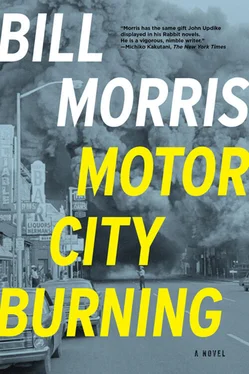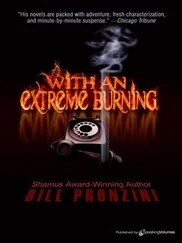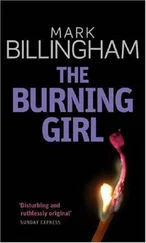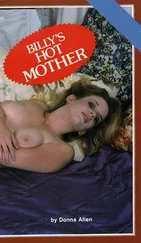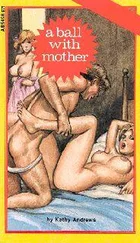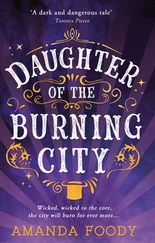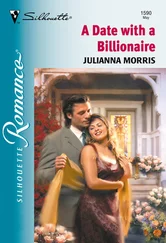Or was the fatal bullet fired by someone other than a sniper?
A lot of black people in this town — from rabble-rousing Rev. Albert Cleage to Congressman John Conyers to the editors of the Michigan Chronicle to some of the cats way out on the revolutionary fringe — were convinced that the fatal shot was fired not by a sniper (that is, a black man) but by a National Guardsman (that is, a white man). Given the chaos on West Grand Boulevard that night and the Guard’s horrendous performance during the riot, Doyle knew it was not a far-fetched theory. And there had been many times — usually when his boss, Sgt. Harry Schroeder, was pushing him to make that fucking Hull case go down — that he would have been delighted to buy the theory himself. But Doyle didn’t buy theories because they suited his desires or someone else’s political agenda. He bought theories and made arrests based on physical evidence, witnesses, confessions, and, sometimes, luck and squealers. And he knew he was nowhere close to making an arrest in the Hull case. The name stared down at him from the squad room wall, written in red grease pencil on a sheet of clear acetate: VIC #43 HELEN HULL. Just above it was the name of the only other riot victim whose killer was still at large — VIC #42 CARLO SMITH — a firefighter who got shot through the head while he was organizing units outside a burning warehouse on the East Side. The Hull and Smith cases, like all unsolved homicides, grew colder by the day. They were an insult. A torment. A homicide cop’s worst nightmare.
But there was something that gnawed at Doyle even worse than seeing Helen Hull’s name in blood-red block letters every time he came to work: the two snapshots of Helen Hull he kept on the cork-board partition that separated his desk from Jimmy Robuck’s. Doyle was a sucker for snapshots, especially family snapshots, no doubt because he didn’t have a family of his own other than one workaholic brother, an alcoholic sister-in-law, and their two daughters, who grew more ungodly gorgeous by the day and believed, for some strange reason, that their Uncle Frank had personally hung the moon.
Of course there were a dozen pictures of the girls, Lizzie and Val, pinned to the corkboard, along with a picture of his brother the day he’d made captain, a picture of his parents on their wedding day, a picture the Doyle family in front of the Christmas tree taken during the twilight of the Truman administration.
All those pictures orbited around the two pictures of Helen Hull. The bigger one, in full color, showed Henry and Helen surrounded by the Doyle brothers and a couple dozen neighborhood kids, everyone roaring full-throat, arms around each other’s shoulders, black kids, white kids, Arab kids, a couple of Hispanic kids, even Henry Wong the Chinese kid, all scabby knees and missing teeth and PF Flyers, one big happy family standing at the top of the center-field bleachers in Tiger Stadium. Doyle loved that picture. Henry and Helen rented a bus every summer and took all the neighborhood kids to a Tigers’ game, even sprang for hot dogs and peanuts and Cokes. It was, without fail, the best day of every summer in a boyhood that now seemed like it was nothing but a long string of cloudless summer days.
The other picture of Helen Hull was much smaller, black and white. It was a crime-scene photo taken in the fourth-floor hallway of the Harlan House Motel on the night she died. It was a brutal thing, which was why Doyle kept it pinned to the partition. He would not allow himself to forget what had happened to Helen Hull.
In the photo she was lying on her back on the hallway floor with shards of glass all around her. But it was her expression and her body language that got to Doyle every time he looked at that picture. Her eyes were wide open, like she had just seen something unimaginably horrible, and she was holding up her hands, as though pleading with someone or trying to ward off a blow. There was a dark stain just above the belt of her creamy dress. That’s where the bullet went in and her life-blood poured out. Whoever pulled the trigger was one hell of a shot.
The scene was starkly lit. The police photographer had to use a flash because the cops had shot out all the lights as soon as they arrived on the fourth floor. The last thing you noticed was the uniform standing off to the side of the frame holding a flashlight and looking down at Helen Hull with an expression that was hard to read. Was it pity? Or was it scorn that anyone could be stupid enough to stand in a brightly lit picture window while a war was being fought down on the street? The uniform was Charlie Dixon, a classmate of Doyle’s from the police academy. One day, when this was all over, Doyle planned to ask Charlie what was on his mind when that flashbulb went off.
“You say we missed something, Mr. Hull?” Doyle said now, sipping coffee and trying to sound excited. He wasn’t awake yet.
“Something that was right under our noses the whole time! It’s a miracle we missed it!”
His excitement was more contagious than the measles, and Doyle found himself waking up a little. “What is it, Mr. Hull?”
“I can’t explain over the phone, Frankie. You gotta come see it with your own eyes. It’s unbelievable!”
Doyle woke up a little more. Henry said “unbelievable” only when he had something good. “I’ll drop by soon as I clear up some paperwork, Mr. Hull. Give me, oh, a couple hours.”
“No rush. I’ll be right here.”
Doyle thanked him for calling and tore open the manila envelope. It contained a pair of tickets to tomorrow afternoon’s game between the Tigers and the Chicago White Sox. The tickets were tucked inside a note that read You don’t know where these came from. Enjoy the game. Rod . Doyle had planned to spend Sunday weeding his vegetable garden, but those weeds weren’t going anywhere.
He studied the tickets. They were upper-deck box seats on the first base side, his favorite spot in the park, and the first pitch was at 1:05 P.M. Perfect. He was enough of a traditionalist to believe that baseball was meant to be played in sunshine, not under the hot white glare of those lamps they’d bolted to the stadium’s tarpaper roof. And he knew from careful reading of box scores in the Free Press that the fever of Opening Day had already cooled. After drawing more than 40,000 fans for the opener, the team pulled in only about 10,000 the next day. It was still early, of course, but a lot of people were saying that these Tigers had a legitimate chance to win the pennant and atone for losing it to Boston on the last day of the ’67 season. That would be nice. This city could sure as hell use a little cheering up.
Doyle was glad his brother hadn’t sent tickets for Opening Day. He hated Opening Day, which he called Fair-Weather-Fan Day, and he avoided it for the same reason he stayed home on New Year’s Eve, which he called Amateur Night. Noise-makers and stupid hats and champagne expensive enough to make you act like an asshole but cheap enough to give you a head like a dirigible the next morning. All that forced gaiety. The only thing Doyle hated worse than being told when to have a good time was being told he wasn’t allowed to have a good time.
The question now was: Who to invite to the game? He wanted to ask a woman, but the right kind of woman, one who would be interested in what took place on the field. He couldn’t stand going to the ballpark with someone who didn’t care about the game, who was just there to show off the new wardrobe or blow off a little steam. Let the Grosse Pointe swells sit down behind the dugout looking like a million bucks, and let the brothers and the longhairs and the rivet-heads from Hamtramck sit out there in the bleachers and take their shirts off and get rowdy and loud. Doyle went to ballparks to watch ballgames.
Читать дальше
